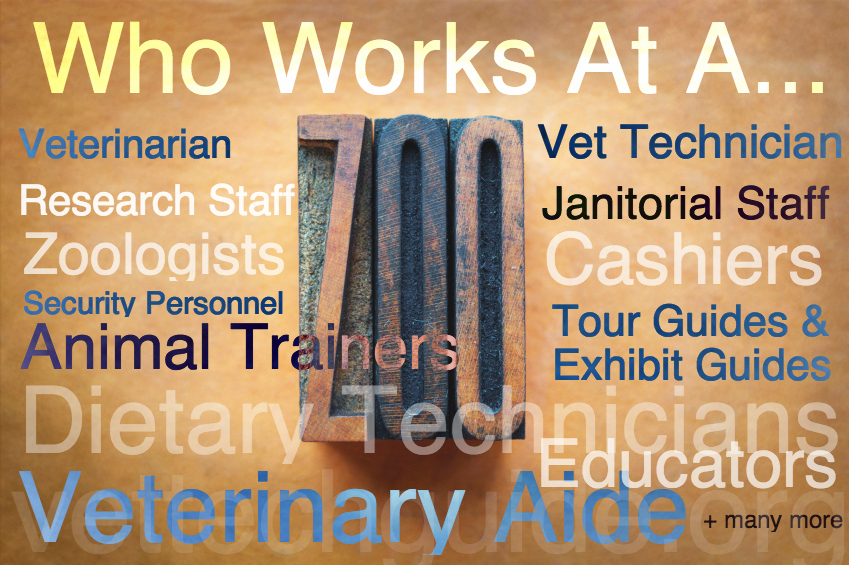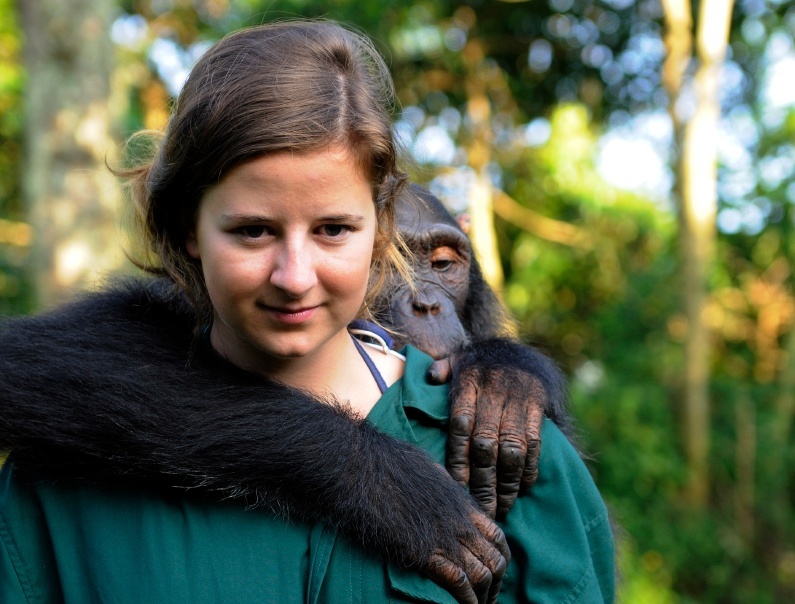Zoos, wildlife parks and wildlife refuges play a vital role in preserving America and the world’s wildlife. In many cases, these institutions may be the last remaining hope for the long-term survival of endangered species.
In addition, zoos and refuges play an important role in educating the American people about various types of animals and the importance of protecting the natural environment.
In order to maintain a healthy environment for the animals under the zoo or wildlife refuges care, these institutions employ a wide range of veterinary care professionals.
Whether it is to ensure that the animals have a proper diet, or to prevent the outbreak of contagious diseases, specialized wildlife care professionals are a vital part of any zoo or refuge.

Veterinary Care Professionals in the Zoo or Refuge
Because most zoos and refuges have a wide range of exotic animals, having an experienced and knowledgeable veterinary care staff is a vital part of ensuring that the animals remain healthy and content.
Veterinarians
Licensed veterinarians provide the zoo animals with a wide range of veterinary care services, whether it is curing an animal’s illness or assisting zoologists in carrying out a breeding program to preserve an endangered species.
Because most zoos have a limited amount of space, the veterinarian will be especially concerned with preventing the outbreak of contagious diseases among the zoo animals.
Veterinary Technicians

Licensed veterinary technicians provide a variety of services in the zoo setting. These individuals assist veterinarians and other professionals in providing high quality care to the various zoo animals. While most states do not permit veterinary technicians to work on their own, the precise nature of the vet tech’s duties will often depend on the policies of the zoo or refuge management.
Veterinary Aides
In most areas, veterinary aides do not have to be certified or licensed and generally assist with feeding and moving the animals. Although they are not permitted to undertake most veterinary procedures, veterinary aides play a valuable role in freeing the vet techs and veterinarians to provide care for the zoo animals.
In some cases, a veterinary aide may be working at the zoo while studying to become a vet tech or a veterinarian, in order to gain valuable practical experience.
Specializations
Because of the wide range of species found in a zoo, many veterinary professionals specialize to a greater or lesser degree, depending on the size of the institution.
A large zoo may have a staff of dozens of veterinary professionals, many of whom specialize in providing veterinary care to a specific type of animal. A common example would be the veterinarians that specialize in providing care to mammalian species such as lions or rhinos, leaving the care of the reptiles to other staff members.
Research Staff
In addition to serving as public attractions, many zoos and wildlife refuges are functioning research establishments. Because of this, many of these groups include zoologists or other researchers among their staff. In other cases, researchers may visit the zoo on a regular basis, assisting the permanent staff while carrying out their own research.
Most zoologists working at a zoo have obtained a bachelor’s or higher degree and have a great deal of practical experience in their field. The subject of their research can vary widely, from determining the impact of pollution on an animal species to assisting with breeding projects to prepare a species for a return to its natural habitat.
Finally, in some cases the research staff and veterinary staff may share duties. Many animal researchers are also qualified veterinarians, and so they may provide care while also conducting research on the zoo or refuge animals.
This is especially common when the research involves health issues, such as studying the transmission of disease among animal populations.
Support Staff
Zoos and wildlife refuges also require a large number of general support staff. This support staff can include the following areas:
- Dietary technicians, who prepare the food for the various animals.
- Janitorial staff, who ensure that the animal enclosures remain in a sanitary condition.
- Security personnel to ensure that the zoo environment remains a safe one for visitors and employees alike.
Entertainment Staff
 Finally, as most zoos and wildlife refuges are open to the public and consider educating the public about the natural world as part of their core purpose, the entertainment and visitor relations staff plays a vital role in the zoo’s operation.
Finally, as most zoos and wildlife refuges are open to the public and consider educating the public about the natural world as part of their core purpose, the entertainment and visitor relations staff plays a vital role in the zoo’s operation.
These individuals can range from cashiers and ticket-takers to highly trained educators.
In addition, many zoos engage in outreach programs that may see staff members traveling to schools and events in order to educate the public about the mission of the zoo or wildlife refuge.
These individuals include the following jobs:
- Cashiers, ticket-takers and concession operators. These positions can generally be filled with semi-skilled labor, although being able to positively interact with the public is a must.
- Tour and exhibit guides. These positions require an engaging personality and ability to educate laypeople about the mission of the institution and facts about the exhibits being shown. In many cases, these individuals are college students who are serving as interns.
- Animal trainers and exhibitors. These individuals train and put animals through public displays. Not all zoos and wildlife refuges employee animal trainers.
Educators

Educators play a vital role in a zoo or wildlife refuge. In some cases, they may be zoo employees, such as zoologists or veterinarians who take time out of their schedule to work with the public, while in other cases, they may be solely employed in the educational role. These individuals help spread information about the zoo and its mission, often appearing at local schools or other venues.
The educational mission has grown in importance as many zoos and wildlife refuges have started focusing on educating the public about the importance of an environmentally responsible lifestyle. This can be especially important in areas where local wildlife environments are in danger or shrinking due to encroaching human populations.

Ultimately, anyone interested in working at a zoo can find a vast range of potential job openings. These range from openings requiring extensive post-graduate work to jobs that only require a high school diploma.
However, all careers in a zoo or wildlife refuge demand that the employee have a passion about serving the zoo animals and the public alike.